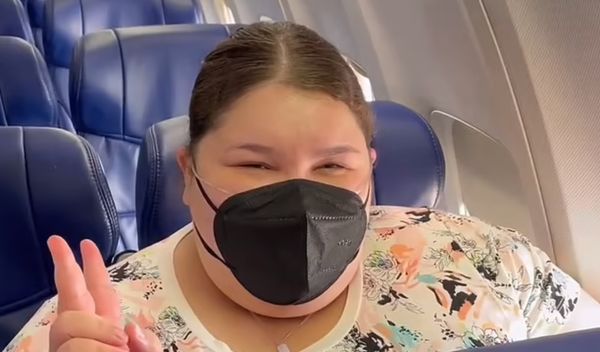Jaelynn Chaney, a plus-sized influencer well-known for her travel and lifestyle content, is leading a movement for change in the airline industry. Her goal is to ensure that overweight travelers are treated with the comfort and respect they deserve when flying. As society increasingly emphasizes body positivity and inclusivity, Chaney’s campaign aims to address the challenges faced by plus-sized passengers during air travel.

Chaney has taken her passionate plea to Change.org, where she started a petition demanding that the Federal Aviation Authority (FAA) and airlines take action to better accommodate plus-sized travelers. To date, her initiative has received support from around 4,300 people who share her concerns.
One of Chaney’s primary requests is for the FAA to intervene and mandate that airlines provide overweight passengers with the necessary number of seats for a comfortable journey. She argues that this would not only improve the flying experience for plus-sized travelers, but also prevent them from encountering uncomfortable and potentially discriminatory situations.
Describing her own and her fiancé’s experiences, Chaney outlines incidents of hate comments, disapproving looks, and even refusal to sit next to her partner during a flight from Pasco to Denver. She also shares her own painful memories of being forced to occupy a single seat with immovable armrests, resulting in bruises.
Chaney’s campaign aims to shed light on these unsettling occurrences and advocate for change within the airline industry. She firmly believes that no one should have to endure discrimination or discomfort while traveling from one place to another.
Additionally, Chaney insists that airlines should refund overweight passengers for any additional seats they are required to purchase to accommodate their size. She argues that this refund process should be easy to access online or through customer service.
While Chaney’s campaign undeniably strives for a more inclusive and comfortable flying experience for plus-sized travelers, it does raise some practical and economic considerations. One important question is how these accommodations would impact ticket prices and the overall cost of flying for all passengers.
Acknowledging this concern, Chaney recognizes that her proposals may result in increased ticket prices as airlines potentially need to allocate more space for plus-sized travelers. This means that non-overweight passengers may also face higher costs to help cover the expenses associated with these accommodations.
The debate regarding whether airlines should provide free extra seats to plus-sized travelers is a complex one. On one hand, there is a compelling argument for ensuring that all passengers have a comfortable and dignified flying experience, regardless of their body size. On the other hand, airlines operate in a competitive industry where ticket prices play a significant role for consumers.
Ultimately, finding a resolution to this issue will likely require a balance between accommodating the needs of plus-sized travelers and maintaining the economic viability of the airline industry. Achieving a solution that promotes inclusivity and comfort while taking into account the financial constraints faced by airlines may require collaborative efforts among stakeholders, including passengers, airlines, and regulatory authorities.
In an era of heightened awareness about body positivity and inclusivity, Jaelynn Chaney’s campaign sparks an essential conversation within the travel industry. It urges us to reflect on the challenges faced by plus-sized travelers and prompts us to seek solutions that ensure everyone can enjoy the benefits of air travel without discrimination or discomfort. The journey toward a more inclusive and equitable flying experience may be challenging, but it is a journey well worth embarking on for a more equitable world for all.






